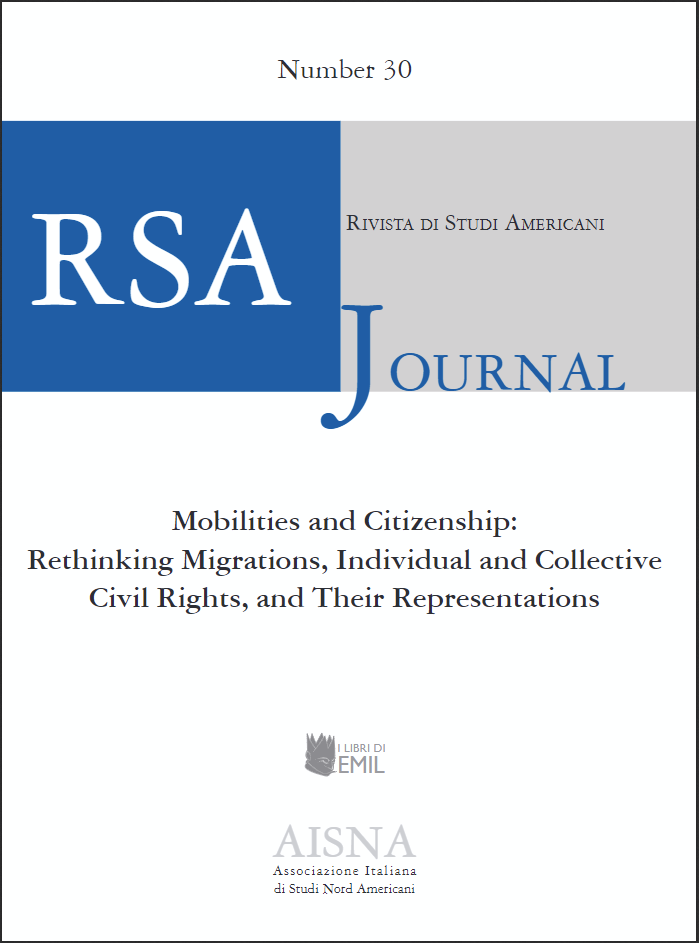Healing the Scars of Forced Migration
An Italian-American Story
DOI:
https://doi.org/10.13135/1592-4467/8514Keywords:
Italian-American heritage, healing, forced migration, immigrantsAbstract
In this research-informed essay, the author connects her Italian-American heritage (and the political processes by which Italians “became” white and American) to current migration issues within the United States and Italy. She argues that migration comes with consequences, good and bad, and represents the loss of home as much as the gaining of a new one. She contends that we can begin to re-humanize migrants in our political discussions by telling stories from our own families, and by recognizing the complicated and sometimes ugly histories from countries such as the United States and Italy. Just as skin color or national origin do not determine who is a “legitimate” claimant of asylum, neither does the “achievement” of arriving somewhere first. The suffering of war and poverty still resides within living memory in places where many citizens vehemently protest the integration of refugees. Those shared human experiences ought to reaffirm our commitment to human rights norms, including the right to asylum, and give us the courage to fight against exclusionary rhetoric.
Downloads
Published
Issue
Section
License
RSAJournal will apply a CC BY 4.0 license to all its contributions starting with issue 37 (2026). Previous issues are licensed under a CC BY-NC-ND licence.





